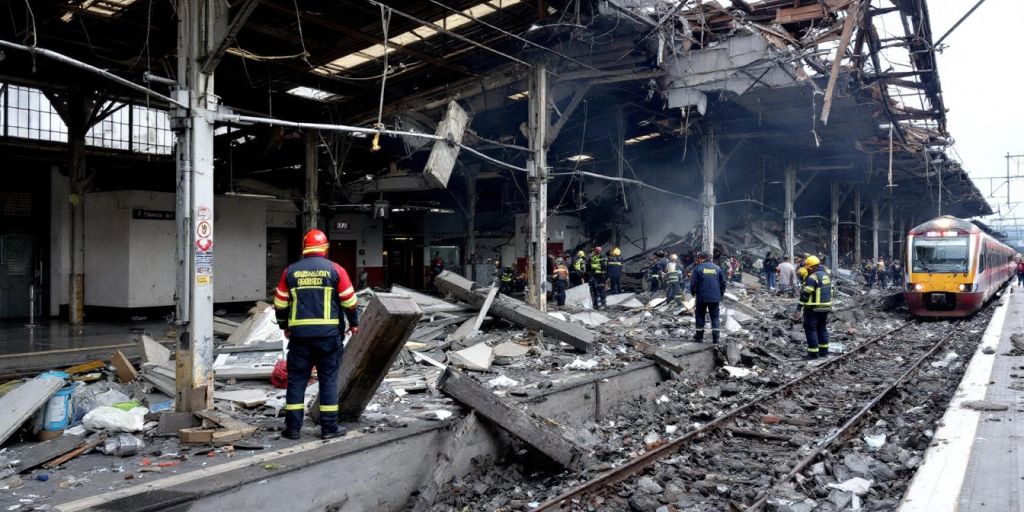A tragic incident in Serbia has led to the collapse of a train station roof in Novi Sad, resulting in the deaths of 14 individuals and sparking widespread protests against government negligence and corruption. The public is demanding accountability from officials, particularly following the resignation of the Minister of Construction.
Key Takeaways
- 14 people died in the Novi Sad train station roof collapse.
- Protests erupted across Serbia, demanding accountability from government officials.
- Minister of Construction Goran Vesić resigned amid public outcry.
- The incident has raised concerns about corruption and safety standards in infrastructure projects.
Overview Of The Incident
On November 1, 2024, a partial roof collapse at the recently renovated Novi Sad train station resulted in a devastating loss of life. The incident occurred when the supports for an exterior concrete canopy failed, leading to the canopy crashing down on unsuspecting individuals below. Among the deceased was a six-year-old girl, and three others sustained severe injuries, requiring amputations.
Public Outrage And Protests
In the wake of the tragedy, thousands of citizens took to the streets in Belgrade and Novi Sad, expressing their anger and frustration. The protests began peacefully, with demonstrators observing a moment of silence for the victims. However, tensions escalated as protesters clashed with police, leading to violent confrontations. Demonstrators hurled bottles and bricks at government buildings, demanding the resignation of top officials, including Prime Minister Aleksandar Vučić and Minister Goran Vesić.
Government Response
In response to the mounting pressure, Goran Vesić submitted his resignation, stating that he did not bear sole responsibility for the construction flaws that led to the collapse. He pointed to unapproved documents submitted by construction firms during his tenure, suggesting that previous officials and contractors should also be held accountable. Prime Minister Vučić acknowledged the tragedy, promising that those responsible would face consequences.
Corruption Allegations
The incident has reignited discussions about corruption within the Serbian government, particularly regarding infrastructure projects. Critics argue that the government has prioritized foreign partnerships over public safety, leading to substandard construction practices. The renovations at the Novi Sad station were carried out by Chinese construction companies, raising further concerns about transparency and oversight in public works.
Calls For Reform
The collapse has galvanized public sentiment, with many citizens calling for comprehensive reforms in how infrastructure projects are managed. Protesters are demanding greater transparency in government contracts, stricter safety regulations, and accountability for those in power. Opposition leaders are pushing for audits of all public infrastructure projects completed under the current administration, emphasizing the need for a shift in priorities towards citizen safety and welfare.
Conclusion
The tragic collapse of the Novi Sad train station roof has not only claimed lives but has also exposed deep-seated issues within Serbia’s government and infrastructure management. As protests continue, the public’s demand for accountability and reform grows louder, signaling a potential turning point in the relationship between the government and its citizens. The hope is that this tragedy will lead to meaningful changes that prioritize safety and transparency in future projects.
Sources
- Train Station Collapse Sparks Protests and Resignation in Serbia – Railway Supply, Railway Supply.
- Video. Violent protests erupt in Serbia after train station disaster | Euronews, Euronews.
- Protests in Serbia after station roof collapse kills 14 – Global Construction Review, Global Construction Review.
- Taco Bell to open first restaurant in Serbia – report | Serbia Investments News | SeeNews, SeeNews.
- Serbian protesters clash with police over train station disaster | World News – Hindustan Times, Hindustan Times.

